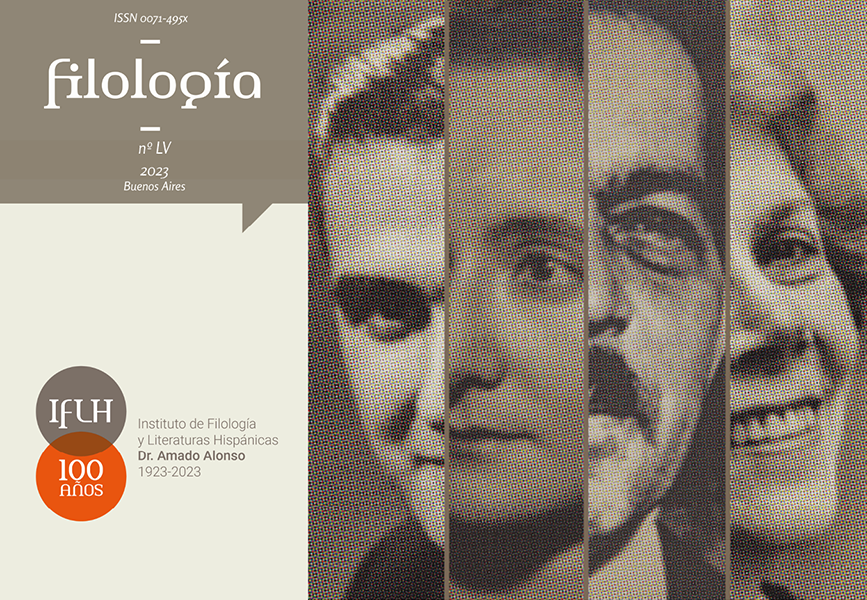The Vectorial Nature of aquende and allende in Spanish: Syntax and Etymology
Keywords:
etymology; syntax; locative adverbs; vectorial constructions; medieval Spanish.
Abstract
This paper studies the vectorial nature of the Old Spanish locative adverbs aquende/allende (‘more over here’/’beyond’) and examines their syntactic behavior in order to shed some light on the controversial etymology of both units. The different sections of the article present (i) a revision of the etymological problems discussed in the literature, (ii) the syntactic characterization of vectorial constructions, to which pattern these adverbs conform, (iii) the analysis of their different variants, and (iv) a proposed explanation of the structure and origin of their vectorial properties, not shared by their internal components. We assume that these come from the fact that both adverbs internally include the two elements that characterize a vector: a source and an unbounded goal, as opposed to the rest of locative adverbs in Spanish.Downloads
Download data is not yet available.
Published
2023-09-26
How to Cite
Brucart Marraco , J. M., & Sánchez Lancis, C. E. (2023). The Vectorial Nature of aquende and allende in Spanish: Syntax and Etymology. Filología, (55). https://doi.org/10.34096/filologia.n55.13480
Section
Contribuciones invitadas
Copyright (c) 2023 José María Brucart Marraco , Carlos Eliseo Sánchez Lancis

This work is licensed under a Creative Commons Attribution-ShareAlike 4.0 International License.













